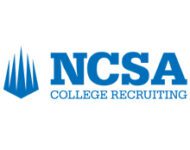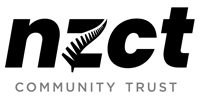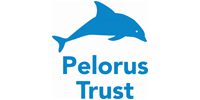Recently BBNZ celebrated the fact that a record thirteen players were participating in the NCAA Championships.
We can also add the name of Luke McDowall to the list.
McDowall, having received a basketball scholarship to attend the University of Alabama, is something of a New Zealand basketball trailblazer.
How is that you might ask, when Aotearoa has over 130 Kiwi student-athletes on scholarships in the States? And when we regularly hear about the deeds of Sam Waardenburg, Dan Fotu, Kruz Perrott-Hunt, Tegan Graham, Kendell Heremaia and the Leger-Walker sisters, Krystal and Charlisse?
McDowall, a 26 year-old Manawatu native, earlier this year became the first ever Kiwi to secure a roster position at an American university to play wheelchair basketball. And his team, the University of Alabama Roll Tide, boasted an impressive 27-7 season and progressed all the way to the National Championship Final.
After defeating the University of Illinois 65-48, hopes were high in the Roll Tide camp. But the team couldn’t prevail in their final game, as hosts University of Texas Arlington came away with the 67-56 victory.
McDowall, who is studying for a Masters in Social Work, explains that the American collegiate wheelchair competition is set up similar to the NCAA season.
“We have approximately 12 teams in the league which compete in multiple tournaments with each other throughout the year, as well as playing against wheelchair club teams,” says McDowall.
“This leads up to our ‘March Madness’ National tournament to decide the national champions. We also use college rules rather than international rules.”
Like most Kiwis leaving New Zealand, McDowall misses his family and friends – but is finding the support he is receiving at Alabama all he had hoped for.
“I love the culture of college and collegiate sports; everyone is either an athlete themselves or fully supportive of the school with the rivalries also adding to the fun.
“I have strong support from Adapted Athletics Program at Alabama and the wider university.”
Luke’s Journey to Alabama
McDowall’s scholarship at Alabama has been a few years in the making, but it gathered real momentum once he made the New Zealand national team – the Roller Blacks.
“One of my mentors, and club teammate, Reo Lewis talked about how he played in the Australian League (NWBL) and the opportunities that arose from that.
“At our next international tournament, we were talking with the Australian manager and he was able to help me find a team to play for in the NWBL.
“I played two seasons with the Adelaide Thunder in 2018 and 2019 and while in the League I had another mentor in Jay Dohnt who had previously completed two years in the US playing for college teams.
“He suggested that I was at the skill level needed for this competition and that I should consider it as an option. I then emailed the coaches of the teams in the American wheelchair basketball collegiate league, provided film from the NWBL, and eventually decided to join the Alabama family.”
Originally McDowall was scheduled to move to Alabama for the 2020-21 collegiate year but the Covid restrictions delayed that plan for a year.
A Move to Wheelchair Basketball
McDowall’s initial forays in basketball were as a 14-year old at school.
“I played half a season for Awatapu College in Palmerston North but I got my disability in June of that year.”
It wasn’t until he was 19 that McDowall was in a position to return to sport.
“I started playing rugby as a four-year-old and have ever since been attracted to the comradery and growth alongside a group of peers that are working to better themselves. This meant I was always attracted to team sports and how there are multiple roles that combine into a whole.
“As I recovered from my disability, I went looking for team sports I could play, and basketball caught my love straight away and I was obsessed.
“Once I got the itch, I found a wheelchair team in Taranaki that I would travel with to competitions and begin learning the game.”
The Palmerston North local admits that one of the greatest NBA players of all-time helped fuel his passion for basketball.
“I had a fondness for the 2014 San Antonio Spurs, particularly Tim Duncan as he dominated people with fundamental skills and was able to apply his individual skills to a team that allowed everyone to get better. In addition, he had a calm ruthlessness about him that I admired.”
Named to the All-Star 5 at the 2015 Wheelchair National Championships, McDowall earned a place on the national team the following year and remembers with fondness and pride his debut for the Roller Blacks.
“Getting to perform the haka as part of the NZ Men’s Wheelchair basketball team for the first time is one of my career highlights,” recalls McDowall.
Roller Blacks assistant coach Glenn McDonald is full of praise for a player he has coached at both an international and provincial level.
“Luke has a nice shot and he is a good rebounder; he’s also an intelligent player, a thinker of the game, who understands the strategies and structural aspects of the game.
“Luke gets on well with everybody, he is unassuming and approachable – a typical down to earth Kiwi,” adds McDonald.
That 2015 All Star 5 Award was gained in the colours of Taranaki and McDowall says his memories of playing at tournaments for that team will be long-lasting.
“The best memories are of my first two teams in Taranaki and Mid-West (a mix of lower North Island players) where we would have multiple road trips for tournaments – blasting music, having a good time, and sharing stories. I have made lifelong families and friends from this.”
The Future for Luke
In the future, McDowall wants to give back to the sport that has provided him with many opportunities and fond memories.
“I helped start wheelchair basketball in my hometown of Palmerston North and in the future I’d like to start a programme for schools that uses the medium of basketball to teach life lessons to give tools to youth to manage themselves in their environment.”
The above fits perfectly into Basketball New Zealand’s Strength & Adapt Plan, as does McDowall’s vision for wheelchair basketball moving forward.
“There isn’t much exposure for wheelchair basketball athletes in New Zealand currently and therefore, we have to leave our league to gain credibility in order to then chase opportunities overseas.
“I would like to see a New Zealand team in the Australian NWBL which is set up similarly to the NBL and that would attract new knowledge and skills to the NZ system as well.”
Despite the Roll Tide’s loss in the National Final, Luke’s enthusiasm is undiminished and he is already looking ahead to next season.
“Being one of the older players on the team it has been awesome to see our continued growth over the whole year, even though we came up short at the end it will only teach us more as a group and will come back stronger.
“Having a knockout tournament like ‘March Madness’ adds an extra level of intensity that you can’t create during the regular season; it helps bring out the best in us. Personally I’m fired up to stay with the programme over summer and continue my development; as my individual abilities increase, so does my ability to help our team and programme thrive.”
He’s also keeping one eye on the game in New Zealand.
“New Zealand wheelchair basketball is at a transition stage and growing, I wish to continue my involvement and advocate for the growth of the sport in our country as we have a ton of talent in our great country! I hope that me being over here shows the multiple pathways available and we can enhance these pathways.”
Awarded an Academic All-American for this past season, the future looks bright for Luke both on and off the court.
Disability background:
Luke has a disability called Transverse Myelitis, a condition where the antibodies stay in the blood system after healing. These antibodies then attack the myelin coating of the nerves in the spinal cord disrupting the messages to the brain.
Luke was a rugby mad fourteen-year-old attending high school when Transverse Myeltis took hold, without any prior warning.
“One morning at school I had chest pain, so I called my mother and in the time it took her to arrive from work I had pins and needles in my foot. Then over the time it took to drive to the 24 hour doctors, I was limping and unable to move my right foot.
“Over the next four hours, it progressed up my right side to my armpit level (T4 spinal cord) and down my left side. I was immediately admitted to hospital and had multiple tests to determine my diagnosis.
“My treatment was then to stabilize my body and begin healing with steroids, I was in hospital for 10 weeks before I was able to transition to home; I still had regular physio visits and home visits. I started visits back to school semi-regularly until the next year.
“Over the first year I was able to gain some mobility back in my left side and less came back on my right. However, I was able to walk with crutches and a splint and eventually was able to better manage my symptoms.”





























